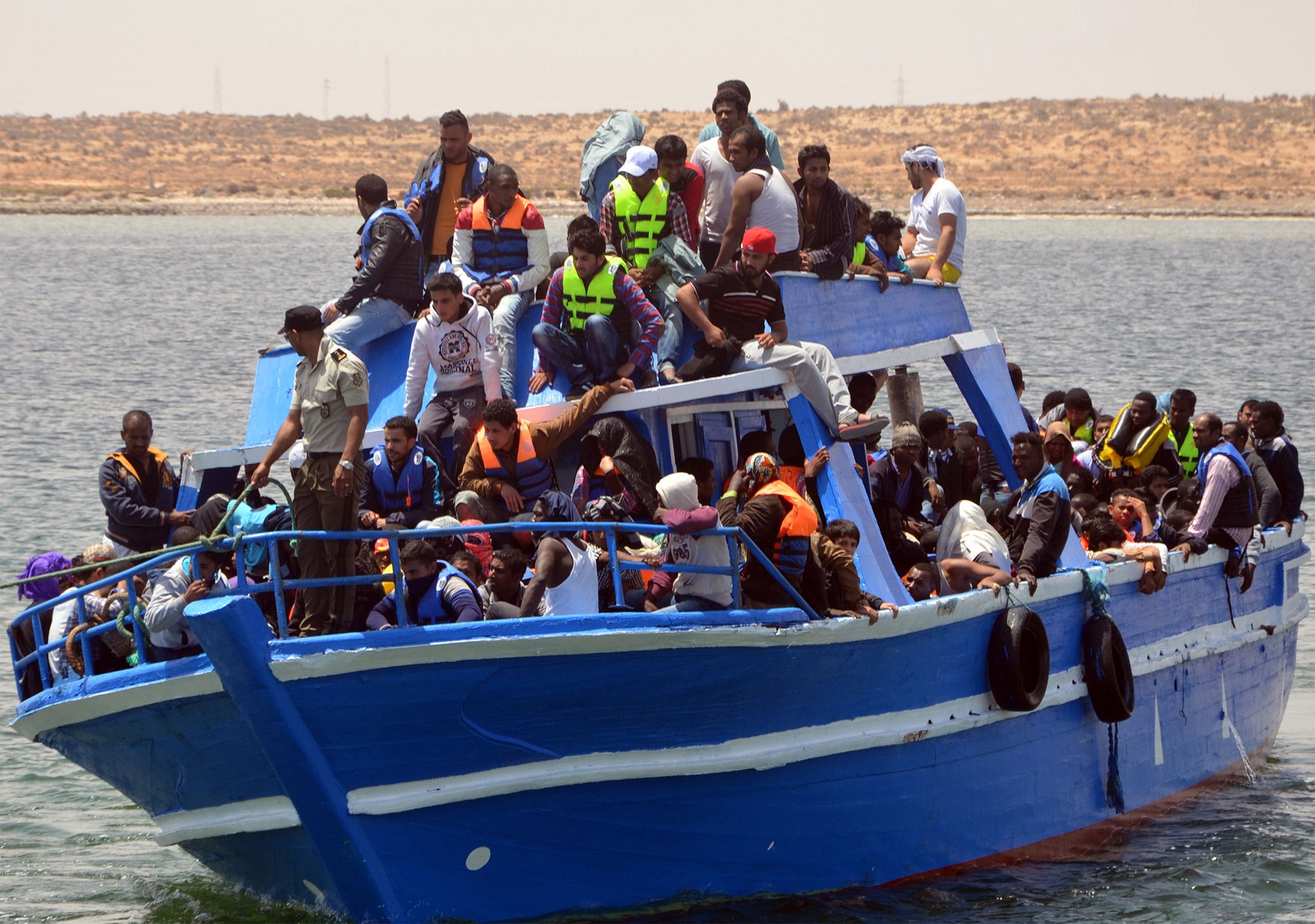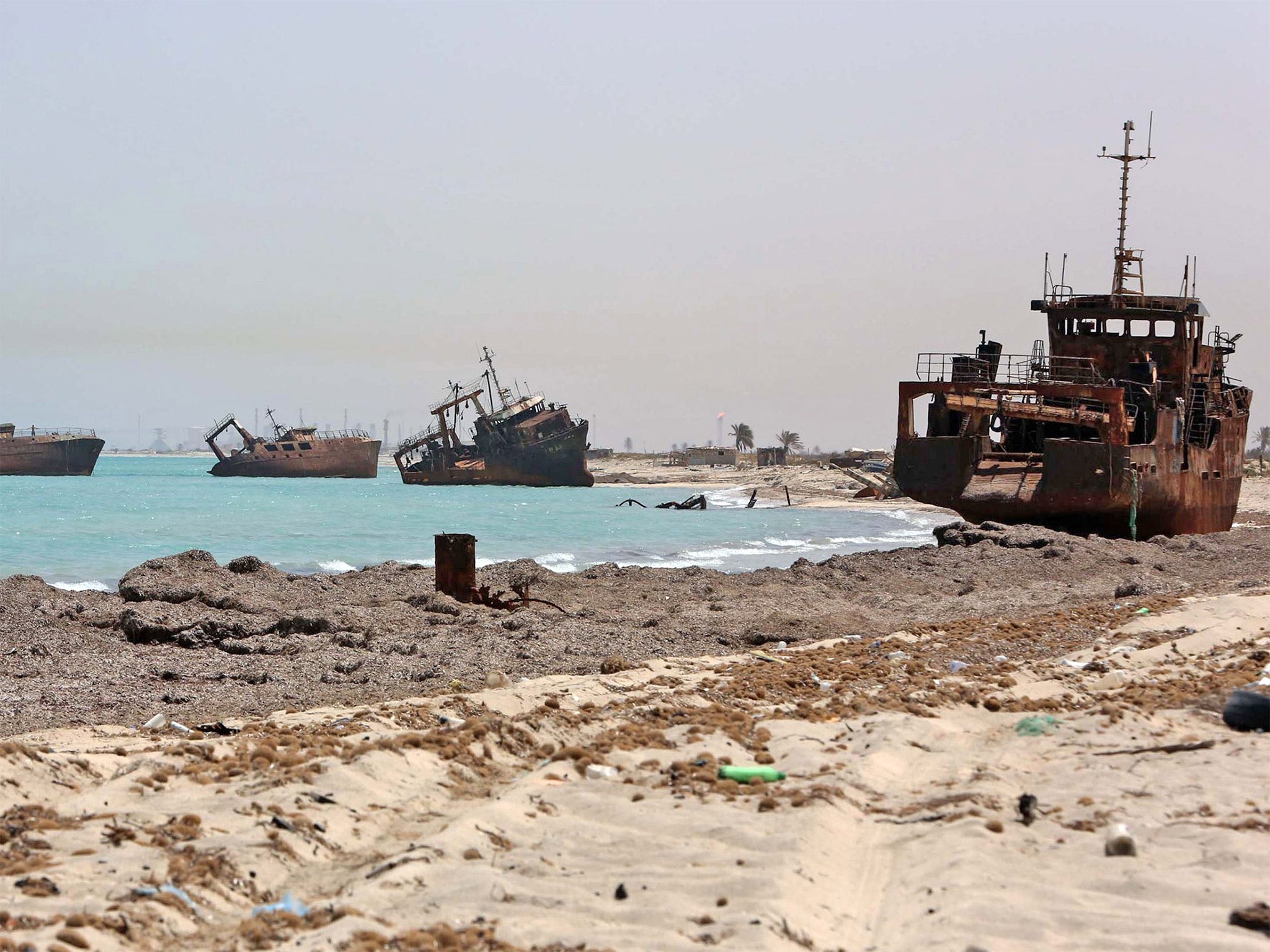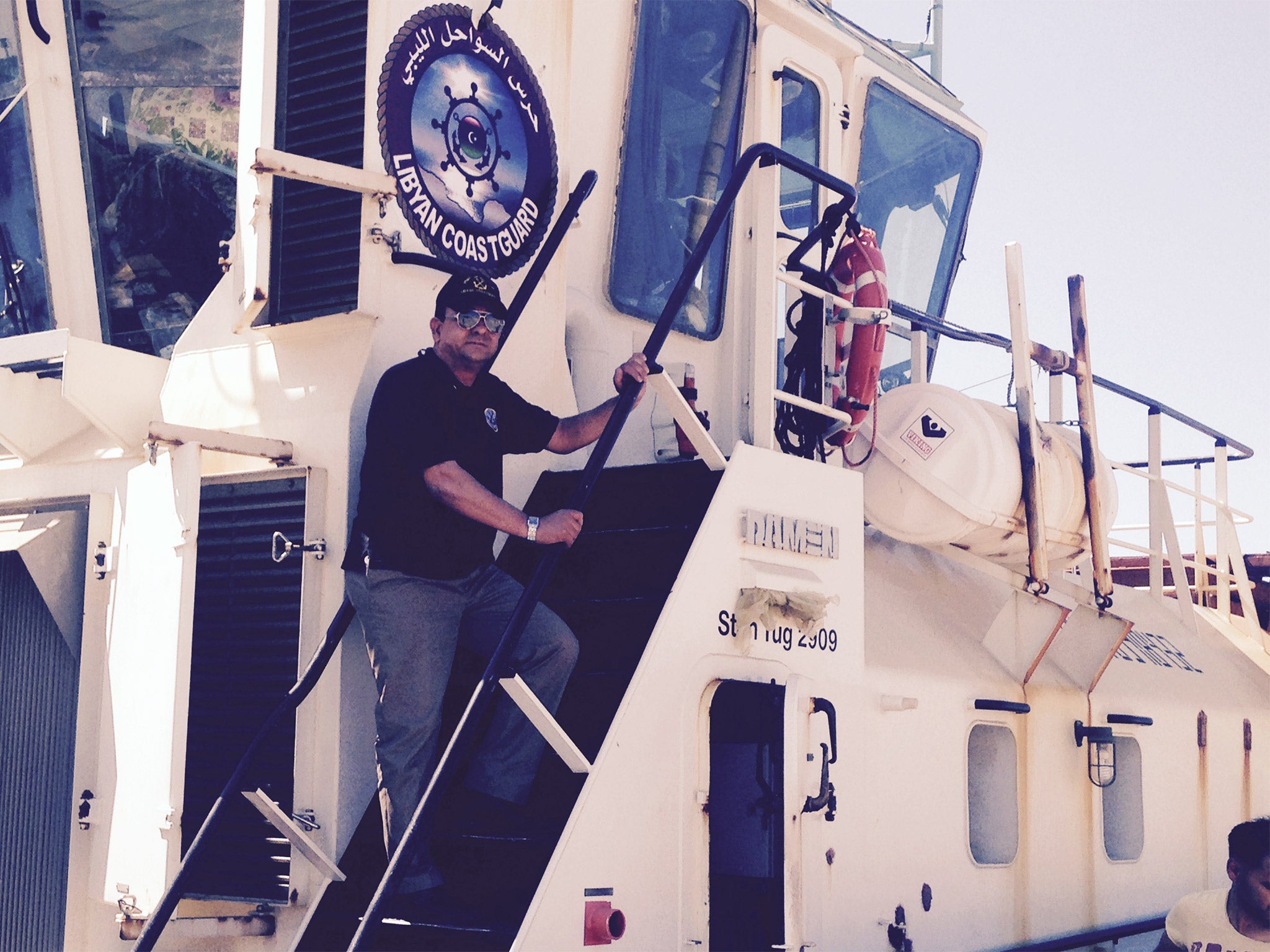Mediterranean migrant crisis: The Libyan human trafficker making $50,000 a week
In the Libyan port of Zuwara, Kim Sengupta is given a disturbing lesson about the economics of the migrant trade

Your support helps us to tell the story
From reproductive rights to climate change to Big Tech, The Independent is on the ground when the story is developing. Whether it's investigating the financials of Elon Musk's pro-Trump PAC or producing our latest documentary, 'The A Word', which shines a light on the American women fighting for reproductive rights, we know how important it is to parse out the facts from the messaging.
At such a critical moment in US history, we need reporters on the ground. Your donation allows us to keep sending journalists to speak to both sides of the story.
The Independent is trusted by Americans across the entire political spectrum. And unlike many other quality news outlets, we choose not to lock Americans out of our reporting and analysis with paywalls. We believe quality journalism should be available to everyone, paid for by those who can afford it.
Your support makes all the difference.For a young man of 23 from an impoverished background, Zouhar would seem to have done well. He has bought land, a house for his family, and a new car for himself. This, however, is a rather modest reflection of his earnings, which are no less than $200,000 (£129,000) a month.
Zouhar is a trafficker of humans, taking advantage of the one trade that is still blossoming as Libya continues to fracture. Around 5,000 migrants were rescued in the Mediterranean in the last three days alone; 95,000 have made the crossing so far this year; and more than 2,000 have died while trying to do so. But the danger has not put off the thousands heading for the main embarkation points for Europe.
Zouhar, with his smuggling operation based in the port of Zuwara, is just one among many who have plugged into the riches to be secured from the migration game. Further along the coast, in Garibouli, 38-year-old Hamza is also making serious money – just over $160,000 a month, a figure that he hopes will rise further now that he has found a source of cheaper boats for his human cargo.
The multinational, multicultural and multi-religious exodus is managed and exploited by militias, criminal gangs and corrupt officials in a chain that stretches from sub-Saharan Africa to Europe. Travelling in Libyan cities, one meets men, women and children from Syria, Tunisia, Palestine, Eritrea, Ethiopia, Somalia, Sudan, Niger, Nigeria, Gambia, Somalia and Chad. They have taken myriad routes to arrive at the coast, with the common dream of a life in the wealthy and stable West.
The journey across the Sahara is fraught with risks – of robberies, rapes, kidnappings and killings. On reaching Libya, the travellers risk being arrested by the government based in Tripoli, one of two that are fighting for control of the country, and ending up in detentions centres. But tens of thousands make it through for the last lap of their journey.

Trafficking syndicates in the two main points of departure, the ports of Zuwara and Garibouli, are very different in the way they handle the business, the people they transport, the boats they use and the money they charge. In Zuwara the clientele is largely Syrians, with a smaller number of Tunisians and Moroccans. Many travel in family groups; they tend to be relatively well-off, able to pay fees between $1,500 and $2,000 per person. Some pay more to ensure the numbers on the boats are kept down.
Trawlers, between 17ft and 20ft long, are bought from local fishermen; each is used to carry between 250 and 300 passengers. “These are good, wooden boats and we always make sure there are two engines in case one breaks down,” insisted Zouhar, with the smooth patter of a salesman. “We are not people who just take the money and then forget about our passengers. We give each passenger a life-jacket, food and water. We have a 90 per cent success rate for our delivery.”
As well as being lucrative, it is a relatively risk-free enterprise for Zouhar and his fellow smugglers. None of them ever boards the trawlers; these are crewed by passengers who are given rudimentary training, or smugglers of the same nationality as the passengers.
A second, faster, boat shadows the trawler part of the way and, as the migrants near Italian territorial waters, calls the Italian coastguards. A neat end, Zouhar explained with satisfaction, to a successful trip.
“Our job is then finished; we leave our passengers in a good condition,” he said. “We know that the European governments will not send Syrians back to the war in their country. They will end up being given asylum. So we have fulfilled our contract and made sure they got to Europe,” he said.
Zouhar broke down the costs incurred for each trip: around $25,000 for the trawler; payments to middlemen of $150 per passenger; $700 for a satellite telephone and GPS tracker, normally bought from a reliable supplier in the town of Sabratha; $600 for fuel; and around $500 for life jackets, food and water.
His syndicate sends one shipment of migrants a week, earning roughly $185,000. This is reduced to $150,000 after costs and, after splitting with his two partners, Zouhar pockets $50,000 a week, allowing him to indulge in purchases like a new snazzy green Chevrolet for $25,000.
Trafficking has transformed the life of Zouhar and his friends. Three years ago they were making modest livings, selling fuel stolen from petrol stations. “After that we started smuggling it to Malta,” he said. “Then people came along to be smuggled and we realised that would just as easy. And now look!”
Zouhar and his colleagues insisted they were unworried by the threat of EU military action to counter the trafficking. “They want to destroy boats? We are prepared to lose them to the Italians with the passengers,” he said. “If they bomb our full boat, or if they attack Zuwara, they will just end up by killing a lot of Syrians. How will that look?”
Nor was there much danger of being arrested, so long as the smugglers keep to the present modus operandi. “We keep working with the Syrians, get paid, no one drowns, they get to Europe,” he said. “Things are different when you are moving black people; it is a different kind of operation. You won’t see many blacks here in Zuwara; the [militia] checkpoints stop large numbers coming in.”
Sub-Saharan Africans tend to head further along the coast, to Garibouli. Some of them could be seen working in the city, as petrol station attendants or street cleaners, or selling trinkets by the roadside, to raise funds for their passage across the Mediterranean according to Hamza, the smuggler.
Most of the men insisted to The Independent that they were simply trying to make money to send to their families back home. One of the few who admitted he wanted to be on a boat, Ali Mohammed Sharkarke, 27, from Somalia, described an arduous trek across four countries during which he was stripped of every possession by the smuggling gang to which he had already paid $2,000 to be brought to Libya.
“We were beaten regularly,” he said. “In Sabha [southern Libya] we were put to work in a field to bring in the harvest. Three women were taken away, one of whom had young children, and we never saw them again,” he said. “I have come this far, I cannot go back now – what is there in Somalia except war? The West knows about al-Shabaab, so how can it send us back there?”
The refugees here were, overwhelmingly, single men of working age who were being charged from $800 to $ 1,000 per head to attempt to reach Europe in dinghies, some of them flimsy and overcrowded. Hamza, a former building contractor, stressed that he took care of his migrants.
“I use Zodiacs from Dubai. They are dinghies, but they have engines,” he said. “They cost 20,000 dinars (around £11,000). I have now found cheaper ones, just as good, but bigger, so more can be carried.”
He added: “There have been a few really bad sinkings because the boats had been overloaded. Some smugglers were too greedy, wanting to make as much money as quickly as possible in case it all ends.
“I am glad I am helping these people, they just want to go to Europe to work. If the Europeans had set up a proper system, we wouldn’t have to do this. Also, the Europeans must remember how they made so much money out of African colonies themselves. Europe got rich from Africa.”
The refugees on the dinghies are left to fend for themselves in the hope that they will eventually be rescued. In some cases, however, there are prearranged pick-ups by ships flying foreign flags. “The dinghies can then be brought back,” said Hamza. “It’s an international operation; there’s enough money for everyone in this.”

In nearby Misrata, Colonel Rida Benissa, the commander of coastguards for northern Libya, stressed: “We have told the Italian authorities of two ships flying Georgian and Cambodian flags which regularly pick up from these boats, pretending to rescue people. But we have heard nothing back from the Italians.
“We also have evidence of links between Libyan and Italian gangsters, but again they are not interested: instead, they are holding four of our patrol boats which were sent to Italy for repair, because they don’t recognise our [Tripoli] government.
“This situation could be resolved if the Europeans worked with us, lent us equipment, boats, gave us information from satellites. Instead they want to bomb these?” He pointed to a deflated dinghy at the dockside. “They are advanced countries, you would think they would be wiser than that.”
Join our commenting forum
Join thought-provoking conversations, follow other Independent readers and see their replies
Comments